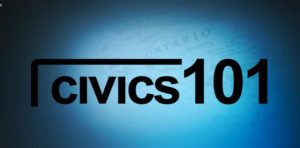‘Civic Participation & Democracy are Synonymous’
Civic Participation Begins in Schools
Stanford Social Innovation Review
Fostering a robust democracy in America requires that we create a truly democratic school culture.
‘Generations of young people growing up in the United States have witnessed a sustained institutional disregard for equal rights, freedom of speech, voting rights, and access to decent housing. Young people in this era are particularly disillusioned about a democracy in which Twitter wars at the federal level become an acceptable substitute for dialogue and debate about substantive matters.
Many schools have failed to prepare our youngest citizens to become stewards of democracy, possessing the knowledge and skills required for active and engaged citizenship. Statistics demonstrating this failure are plentiful: Only one-third of Americans can name all branches of government, and one-third cannot name any at all. 37 percent of Americans cannot name any of the rights guaranteed in the first amendment. And perhaps the most worrisome statistic: Only 33 percent of Americans born after 1980 consider democracy essential, while 24 percent of young people consider democracy a bad way to govern a country.
Today’s nationwide toxic environment provides an impetus for articulating a more inspiring and citizen-centric vision for our public schools. This new vision includes re-imagining schools as laboratories of democracy, enlisting young people as co-collaborators with educators and local community members as partners in constructing the democracy our country both needs and deserves. Rather than exhorting young people to understand a staid conceptualization of democracy that reduces their own agency in the ever-changing American narrative, there is an opportunity for schools to engage our youth as legitimate political actors who can help us re-envision the very practice and values associated with democracy.
We can transform schools into beacons of democracy by ensuring that schools focus on centering education in the communities in which they are located, by constructing classes that are relevant to students’ lives, and by creating a democratic culture within school walls.
The process begins with a greater respect for the community in which school are situated. Students need to understand that the community is a place where citizens make their wants and needs known, and work together to solve communal challenges. Community members need to see the success of young people as relevant to the success of the community. Elected officials can learn to recognize students as purveyors of important local civic knowledge, capable of informing the most complex policy debates. Young people have a place in the community’s discourse and action, and it is important for them to experience the messiness and the satisfaction alike of the democratic process.
Our democracy may indeed be at risk, but an appreciation for our unprecedented times opens up unprecedented possibilities. A foundational reorientation of the purpose of public education can enable our youngest generation to not only understand democracy but also participate in creating a better version of it. We may have not yet created a democracy stable enough for future generations. But young people can help to create a better one.‘
[full article: https://ssir.org/articles/entry/civic_participation_begins_in_schools]
Sylvia Rousseau & Scott Warren

Leave a Reply